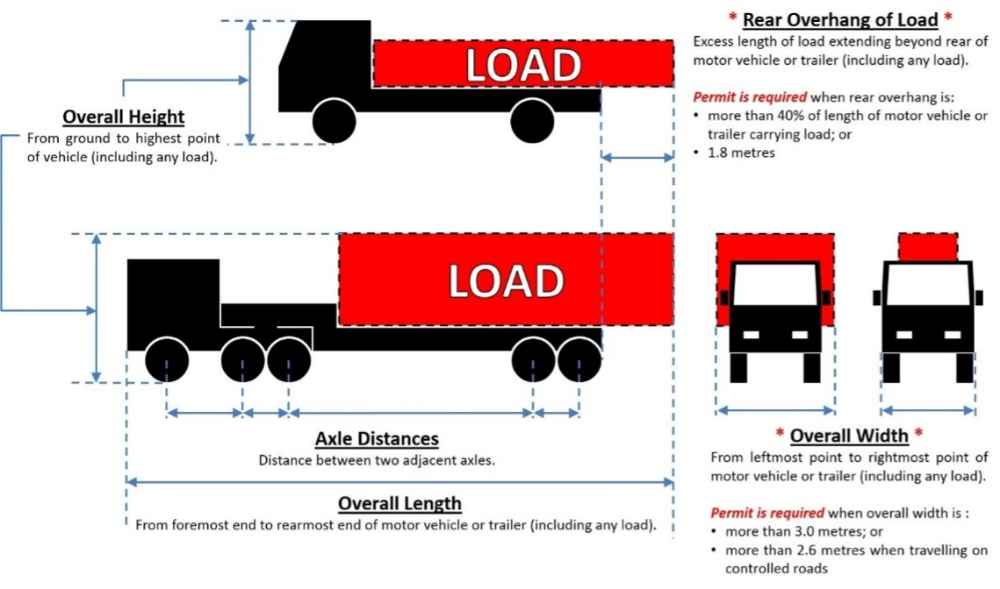
Various industries throughout Singapore are using mobile facilities to offer support or provide a service to communities and other businesses. From mobile offices to kitchens, medical units, and laboratories, industries are taking advantage of mobility and transportation to expand their services.
Designed as trailer-mounted containers, mobile facilities include equipment, tools, and other necessary items essential for performing work tasks. Specific industries use customised and converted motor vehicles or trucks as mobile units for specialised operations.
Mobile facilities broaden the reach of the company, providing flexibility and scalability for the business. They also offer a cost-effective solution for extending the company’s services to isolated areas. This is particularly relevant to the healthcare industry wanting to support vulnerable communities outside urban environments.
Looking to develop mobile facilities? Contact us here to find out how.
Types of Mobile Facilities
#1. Mobile Offices
A mobile office is a movable structure containing equipment, furnishing, bathrooms, and other features similar to a brick-and-mortar workplace. It allows a person to perform the same functions provided by a permanent office in temporary locations without impacting the services or support offered to clients.
Mobile offices are particularly useful on construction sites, as disaster response facilities, and for remote working environments. The benefits of having a mobile office include:
- Reduced setup costs in temporary locations
- Improved workplace productivity despite not being in a permanent-type office
- Flexibility to be used in different locations
Companies can expand their services beyond their physical address, allowing them to broaden their market reach or do business in remote areas efficiently. This type of flexibility helps to improve the company’s profitability.
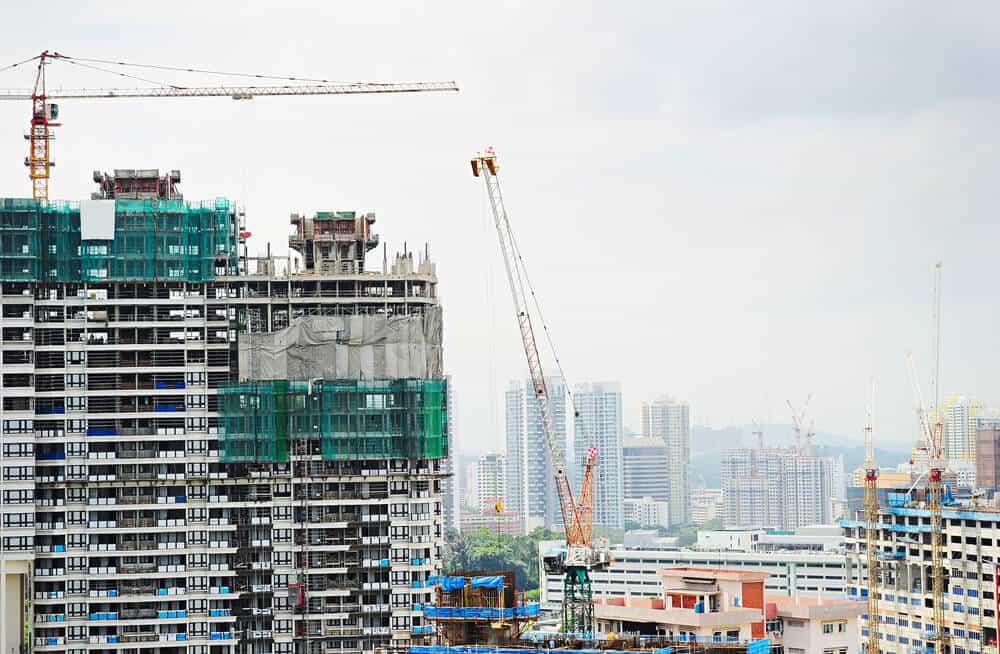
#2. Mobile Medical Units
Providing medical care in remote areas or during emergencies is a key function of the healthcare industry in Singapore. Mobile medical units are designed to support this service, improving healthcare for vulnerable communities living in remote locations. These portable units are equally vital for providing essential medical treatment during emergencies.
Key components of a mobile medical unit could include:
- Examination rooms
- Diagnostic equipment
- A pharmacy
Mobile clinics play a vital role during catastrophic events that have cut off people’s access to medical care. These portable medical units make it easier to deploy necessary healthcare support in such situations. Organisations such as WHO work with different partners to ensure mobile medical clinics can be deployed immediately during emergencies to ensure communities have access to healthcare.
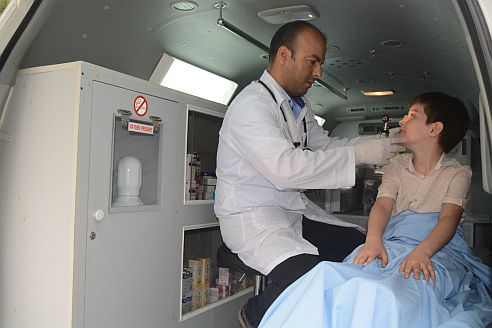
Source: WHO International
#3. Mobile Laboratories
Mobile laboratories are either fully-housed containers transported on trailers or converted trucks, motor vehicles, or buses. They’re used for scientific research and education, environmental monitoring, and disease control. Mobile laboratories are kitted with specialised equipment such as biosafety cabinets and analytical instruments.
The benefits of mobile laboratories include:
- Enabling on-site testing: It becomes easier to perform research and testing in remote locations.
- Improved data collection: Better support for collecting data related to scientific, environmental, or disease-control purposes.
Mobile laboratories can be transported away from the main home facility, making it easier to access more material for research projects. Customised mobile labs can include sleeping and washing facilities, reducing the need to find accommodation for laboratory workers on site.
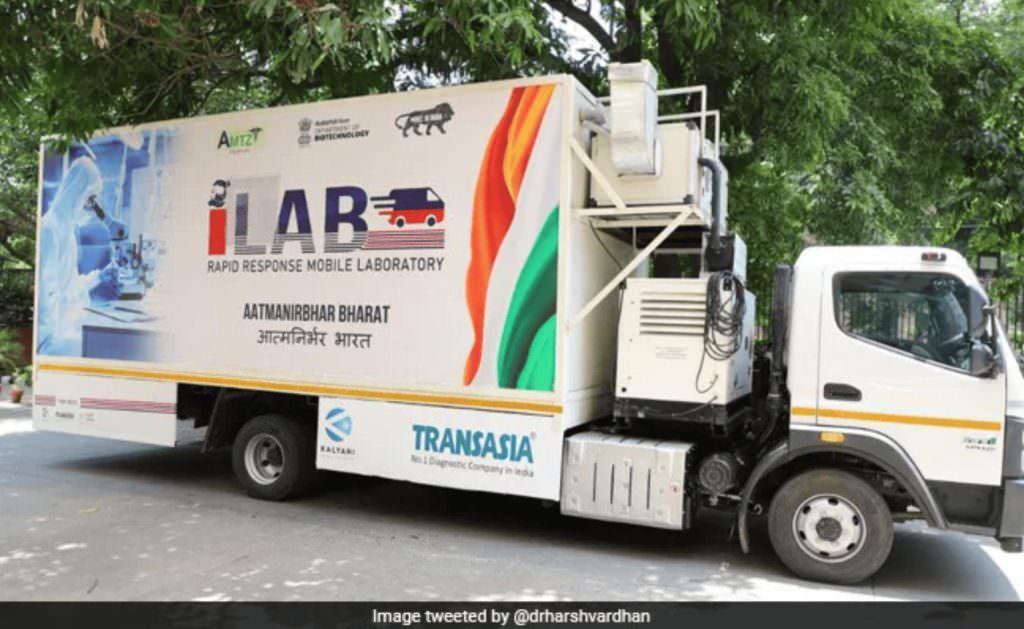
Source: NDTV.com
#4. Mobile Kitchens
Mobile kitchens are used in the food and catering industry to cook and sell meals on-site. They’re also used to provide meals during disaster relief emergencies. Mobile kitchens are equipped with items such as the following:
- Cooking equipment
- Storage facilities
- Hygiene systems
These portable kitchens are an efficient and versatile solution for hygienic food preparation under temporary or remote conditions. Used as a stand-alone kitchen unit, these mobile facilities can be used for events catering, school tuck-shops, film productions, and on construction or military sites.
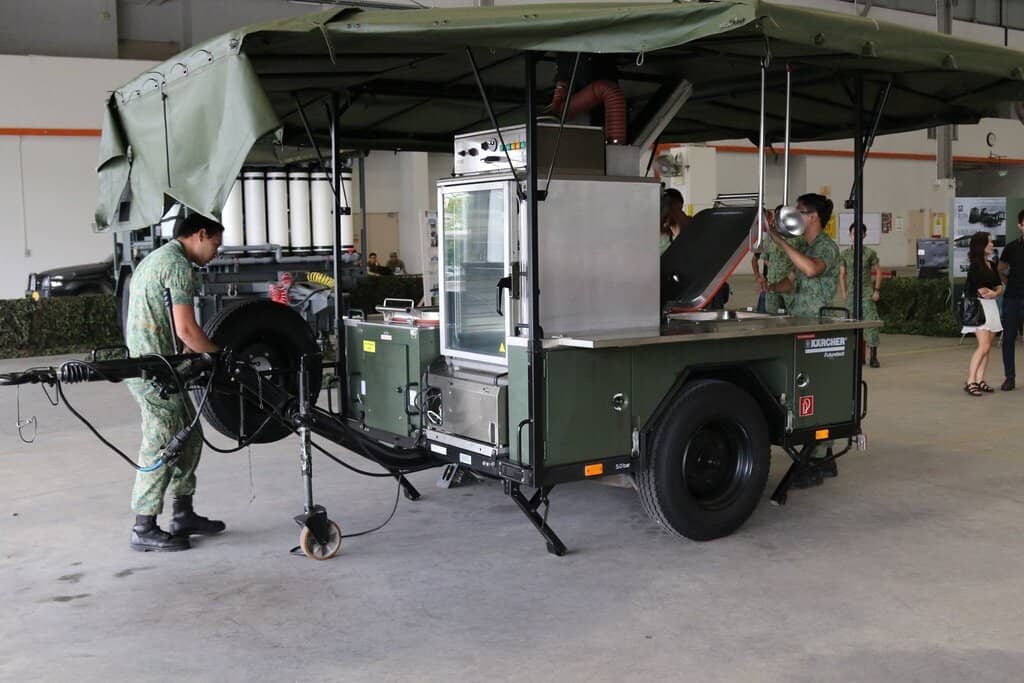
Source: Our Singapore Army
Design Considerations for Mobile Facilities
#1. Mobility and Transportation
The number one design consideration for mobile facilities is ensuring their easy to transport while keeping safety in mind. The following factors need to be considered:
- Weight: Mobile facility design engineers need to factor weight to meet road safety requirements. Not only do they need to consider the weight of the structure but the equipment, furniture, and other features included in the unit.
- Dimensions: A mobile facility needs to be built within the measurements stipulated for safe road use and includes the width and length of trailers, motor vehicles, and trucks.
- Structural integrity: The use of quality materials ensures the structure remains intact and safe for users whether on the road or on-site.
Mobile facility design engineers make use of features such as foldable structures and modular designs to meet the demand for improved portable units. Aluminium frames, lightweight cables, composite materials, and advanced construction methods all help to improve the mobility and transportation of mobile units.

Source: Land Transport Authority
#2. Power and Utilities
Because mobile facilities are often used in remote locations or during disasters, access to power and utilities becomes limited. Design engineers need to factor in solutions such as:
- Solar panels
- Generators
- Battery systems
While these features are essential for a reliable power supply, they add weight to the overall mobile structure. However, design engineers are finding ways around this problem with advanced materials and technology.
Other systems such as waste management, efficient and safe water supply and HVAC units need to be considered when providing a healthy and safe working environment within the mobile facility.
#3. Safety and Security
Another major consideration in mobile facility design is safety and security. Not only is this vital for complying with relevant safety regulations and standards but it’s essential for improved productivity. Workers using mobile facilities are more likely to function better if they know they’re operating in a safe environment.
Mobile facilities should include:
- Fire suppression systems
- Surveillance systems
- Emergency exits
Similar to a brick-and-mortar space, mobile facilities should include occupational safety and security features to safeguard the unit and its workers from various issues. These include fire, theft, structural damage, environmental protection, and workplace ergonomics.
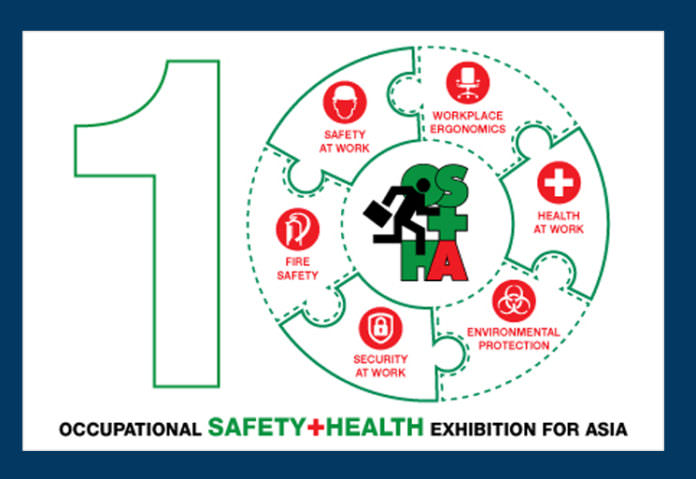
Source: Business News Asia
Customisation and Integration
#1. Tailored Design Solutions
Customising your mobile facility to specific industry requirements means you can provide your services efficiently and professionally. Factoring in specialised equipment and layout design enhances your operational efficiency while getting the job done smoothly and safely.
Tailored design solutions can be used for industries such as healthcare, telecommunications and broadcasting, food hospitality and science research and education. Customising mobile facilities to meet the demands of your unique operational needs ensures you offer a streamlined and professional service.
#2. Integration With Existing Infrastructure
Not only should the mobile facility integrate with existing road infrastructure but it should be compatible with other infrastructural features such as Internet connectivity. Mobile facilities need to be adaptable for easy integration with existing infrastructure such as power and water supply. This way, the unit can operate efficiently and independently.
Integrating mobile facilities with established operations enhances the functionality of the unit as well as workplace productivity in even the most remote environments. The Singapore Food Agency uses cutting-edge technologies to ensure its mobile food lab can integrate efficiently while performing on-site food testing and foodborne outbreak investigations.
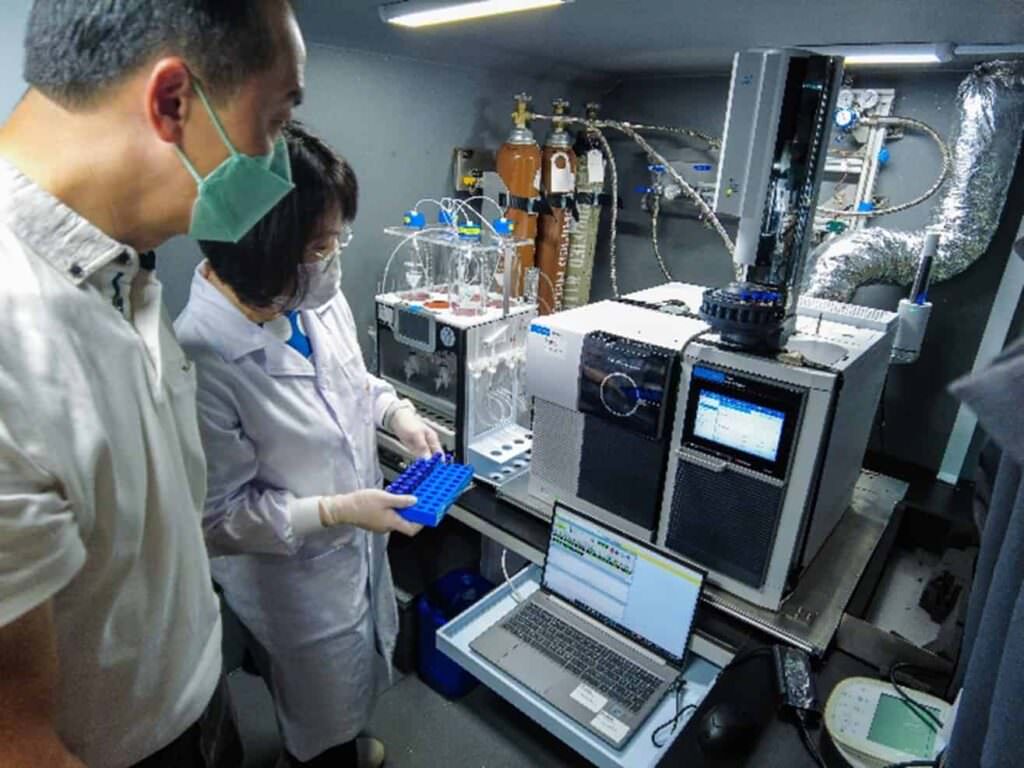
Source: SFA.gov.sg
#3. Future Trends and Innovations
Mobile facilities should be able to meet future trends and include the latest innovations used in your specific industry. Emerging technologies in mobile facilities are constantly changing and improving the design trends of these units, allowing you to stay on top of your game in your field.
Advancements in materials, energy efficiency, and automation improve the functionality of your mobile facility, making it easier to provide streamlined operations. Mobile facility designers are exploring potential future applications such as portable renewable energy facilities and 3D printing units to meet the increasing demand for incorporating innovative business ideas on the go.
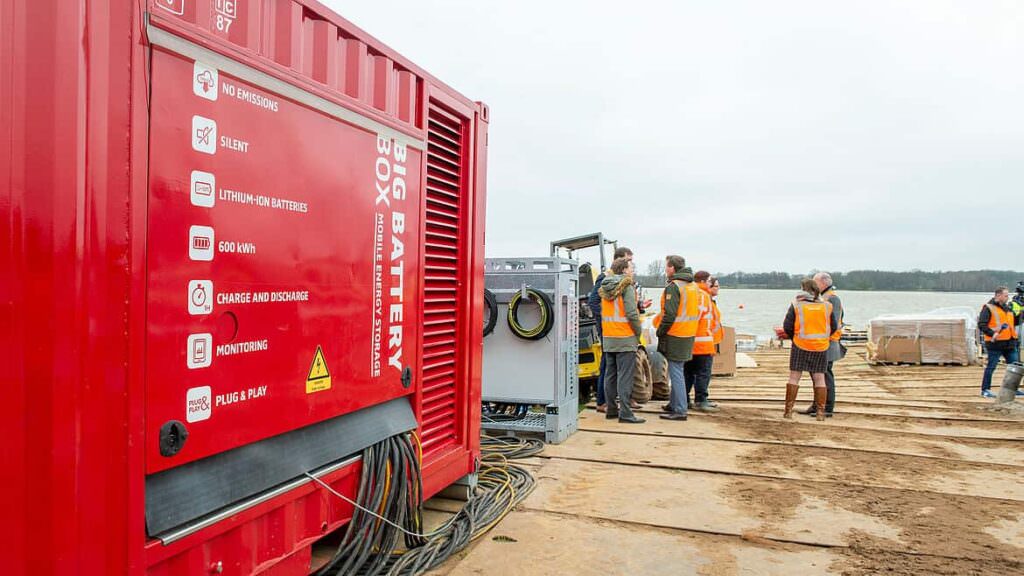
Source: Microgrid News
Work with Syntech on your Mobile Facilities
Design considerations, customisation, and integration plus exploring future trends and innovations are key components for upgrading mobile facilities in all industries. To meet the evolving needs of your specific industry, mobile facility design engineers are constantly exploring up-to-date solutions to improve portable units.
Ongoing exploration and adoption of mobile facilities solutions allow industries to provide improved services and support while ensuring top performance from their teams. Features such as tailored mobile facility design solutions enhance productivity and flexibility.
At Syntech, you can rely on our skilled design engineers to design, customise and build mobile facilities for your specific industry needs. Our team will work together with you to ensure we meet your requests for a mobile facility you can rely on.
Looking to develop mobile facilities? Contact us here to find out how
